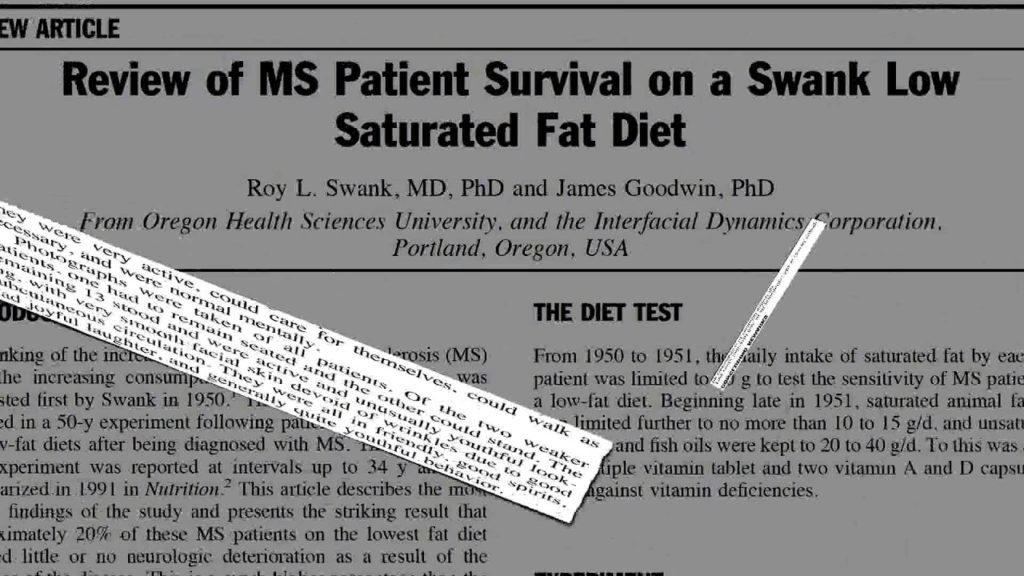
Following the Wahls or the Swank diet could help people with relapsing MS feel less fatigued and that they have a higher quality of life, a US study reports.
In July, scientists in Iowa published research showing people with relapsing MS eating either the Wahls or Swank diet felt less fatigued, and more positive about their quality of life. Both diets are high in fruit and vegetables and low in processed food.
What did the researchers discover?
The research involved 87 people with relapsing MS. They all had ongoing moderate-to-severe fatigue.
The researchers found:
- On average, people on both diets felt their fatigue had significantly reduced and their physical and mental quality of life were better. This was recorded three months and six months after they started eating the diets.
- On average, both diets showed an improvement in how people felt. Various improvements were recorded. In several of these, people on the Wahls diet saw bigger improvements than people on the Swank diet.
-
- After three months, there was no difference in how far people could walk in six minutes. But by six months, the Wahls group could walk further than they could before.
How did they overcome the challenges of diet research?
Lots of people with MS say they feel better on a particular diet. But diet research can be challenging.
This was a small study, but it was carefully designed to reduce some of the limitations of some previous diet research. For example, everyone was first monitored during their normal diet for three months, and then they switched to one of the new diets.
This means the researchers could see how people felt after three months of eating their usual diets, and take this into account when they measured the impacts of the new diets.
Most people in the study stuck to the diets quite well, although some people dropped out along the way. This is important information because if lots of people dropped out, it’s not clear how reliable the results would be. Plus, diets need to be manageable long term.
The researchers helped people stick to the diets by providing regular support from dietitians in the first three months. People could also ask for this support in the second three months.
What this research doesn’t tell us
The study didn’t have a placebo (or dummy) group. So we can’t tell if the psychological impact of simply being on a diet played a part in the changes people experienced, or how big that part might be.
It can be tricky to have placebo groups in diet studies because people tend to always know what they’re eating.
This research doesn’t tell us if everyone with relapsing MS would benefit from these diets, or if the benefits would last longer than six months.
When assessing research evidence it’s always important to consider conflicts of interest in people running or funding studies. Dr Terry Wahls led this study. She developed the Wahls diet, which could be a potential conflict of interest. But the study was funded by the National MS Society in the US, who played an active role in making sure this potential conflict was well managed.
Why did people feel better?
We don’t know exactly why people felt better after these diets. The researchers suggest perhaps the diets reduce inflammation in some way. This might work because the diets support the microbes that live in our gut. But no one has studied what happens to inflammation or gut microbes after being on these two diets, so we’re not sure.
People in the study were also advised to take supplements, including cod liver oil and vitamin D3. We don’t yet know if there was an effect from the supplements themselves. The researchers plan to analyse what people ate in a follow-up paper.
Should I change my diet?
If you feel better eating a certain way, it could be a change that works for you. But like any lifestyle change, there’s lots you might want to think about, including making sure you get all the nutrients you need.
Both these diets focus on eating lots of fruit and vegetables and some unsaturated fats, and eating less processed food. These are usually good tips for healthy eating in general.
But even with recent studies like this one helping us understand more, there’s not enough evidence to recommend a diet for everyone with MS.
Find out more about the Wahls, Swank and other special diets
![Swank Vs. Wahls Randomized Trial for Multiple Sclerosis [Analysis of the WAVES Study] - YouTube](https://i.ytimg.com/vi/RS6wlSbCu_c/maxresdefault.jpg)


